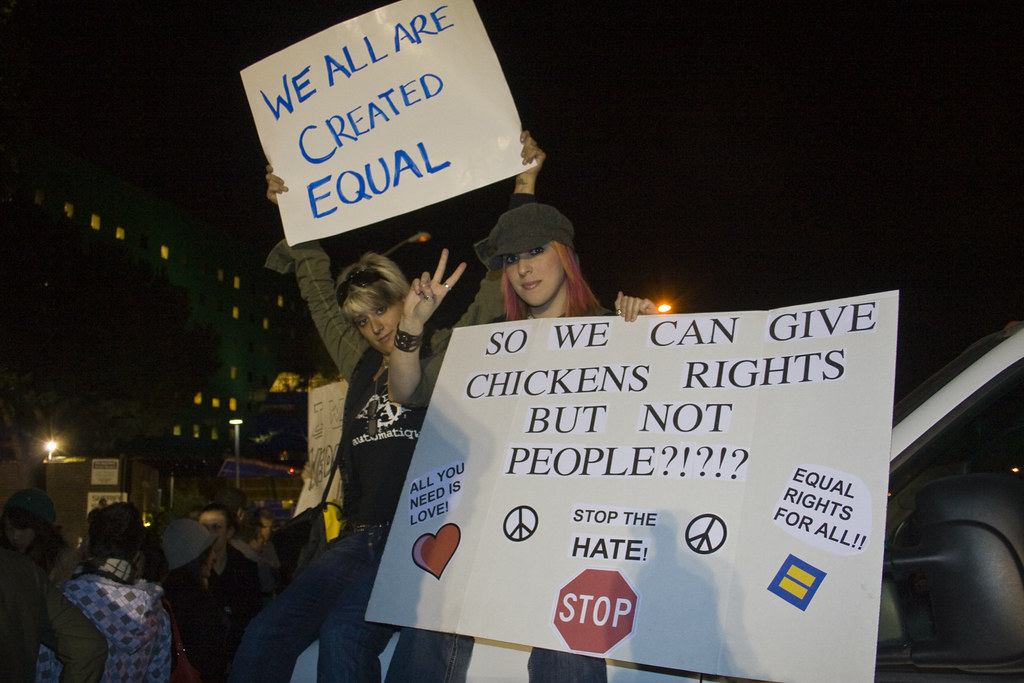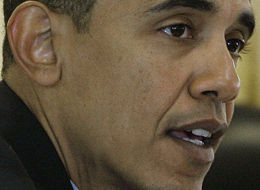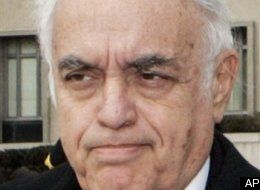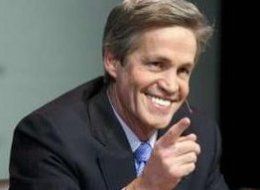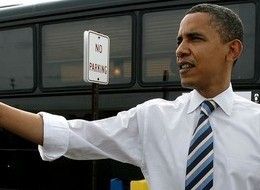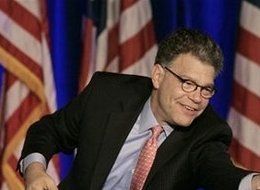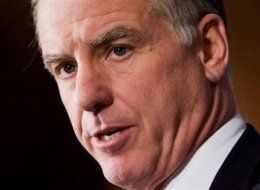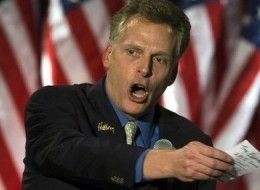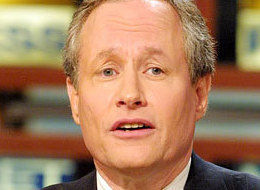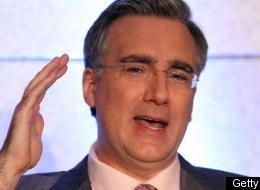This Traitorous Ass Novak, He Fucks With Us ...
And just GREAT —
THE SCUM IS ANOTHER SELF HATING JEW who deserves no pity ...
Washingtonian Magazine: Barbara Matusow: Bob Novak, “What I've Learned”
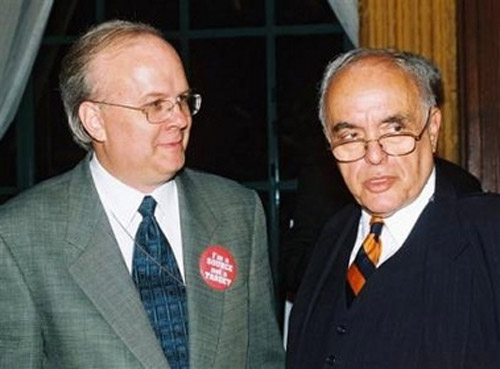
Top Traitors Rove and Novak plan to sell their grandmothers to white slavers after fucking over the American People.
Bob Novak has been covering politics—and making people mad—for half a century. Now battling a brain tumor, he talks about his illness, the best and worst presidents, and what he’d do differently.
Whether you like him or hate him, Robert Novak’s combination of insider dope, political pronouncements, and glowering TV presence have made him a Washington institution. So the announcement in July that he was suspending his newspaper column because of a brain tumor came as a jolt. What other journalist has been tearing up the town with so much relish for the past 51 years?
I spent some time with Novak five years ago for The Washingtonian, chronicling his journey from secular Jew to devout Catholic. Somewhat to my surprise, the scowling, sardonic columnist turned out to be a peach of a subject. He gave me plenty of time in spite of his killer schedule and seemed utterly candid. No subject was off limits.
Yet I couldn’t shake the feeling that he was putting me on at times, making himself sound more misanthropic than he really was. I finally concluded that the pose—Scrooge in a three-piece suit—was manufactured to make him into a memorable TV personality, which it did. It also made him rich.
The last decade has dealt him some blows. Rowland Evans, his column-writing partner for 30 years — whom he eulogized as a brother — died in 2001. Novak’s opposition to the war in Iraq left him alienated from onetime friends like Bill Kristol and William Rusher. On top of that came the Plame affair, in which he revealed the identity of CIA analyst Valerie Plame Wilson—an episode he said cost him $160,000 in legal fees, spelled an end to his career at CNN, and subjected him and his family to threats.
Then, last summer, after hitting a pedestrian with his Corvette and suffering three seizures, he was diagnosed with a brain tumor and given six months to a year to live.
Knowing how ill he was, it was with some trepidation that I asked to talk with him, but he readily agreed. I found him sitting in the living room of his comfortable apartment on Pennsylvania Avenue not far from the Capitol, thinner and a little frail after brain surgery and daily doses of radiation and experimental drugs.
Admirers will be glad to hear that he has not mellowed. He is as pugnacious as ever, although he expressed frustration at not being able to pick up the phone and report the way he used to. Even so, he says he’s planning a sequel to The Prince of Darkness, his 2007 autobiography, and looking forward to the day when he can get back to work.
You’ve said your Catholicism was helping you deal with your illness.
Well, nobody wants to die. I certainly don’t. But all Christian faiths, and certainly Catholicism, hold that there’s an afterlife, that we are not just dust to dust. And that’s comforting, particularly now that I have an illness and there’s very little chance I will recover. A priest who visited me told me I’ve been given a chance to prepare myself. So I began to think about my life and what I’ve done right and not done right and to prepare myself for the last days. I’ve found that reassuring.
Yet you’re going through this tremendously painful regimen. Given your diagnosis, is it worth it?
Look, it’s not easy or pleasant, but it’s worth it because I don’t want to die. I’m very, very tired, so there’s a great temptation to just give up. But that’s not my nature.
Despite your ups and downs and your illnesses—this is your fourth cancer—you’ve been pretty lucky most of your life. Your mother spoiled you rotten. Your wife, Geraldine, practically cuts your meat. Your colleagues seem not just willing but happy to perform the most menial tasks for you. How does one get to be treated so royally?
It starts if you’re an only child. You’re told you’re wonderful, you can do no wrong. My mother always gave me the impression I was going to be something successful in the world. She didn’t know what, and she certainly wasn’t happy with the career path I took, but she never criticized me.
A person with a mother like that ends up with a great deal of confidence, which is a good thing to have if you’re going to be the kind of journalist I was. If you’re just going to report on car wrecks and interview the victims, you don’t need much confidence. But if you’re going to make proclamations on the state of the world, it helps to have confidence—even if that confidence is unwarranted.
All your life you’ve been a workaholic whose only outside interest, you’ve said, was sports. Looking back, would you do anything differently?
I don’t think so. I have had so much fun in my life. I do like a few other things. I have season tickets to the Washington National Opera. I have season tickets to the Shakespeare Theatre. I love to read history. I’ve been writing a novel in my head for years. It takes place during the Thirty Years’ War—I’m kind of a nut on the Thirty Years’ War. I love poetry. I love T.S. Eliot, Ezra Pound.
So I think I’d do it about the same way except for my children. I think I paid too little attention to my two children when they were young. I’m very lucky—they’re both wonderful. In this crisis they’ve just been terrific.
When you covered Capitol Hill in the 1950s, you were a quasi-regular at the after-hours soirées Senator Everett Dirksen used to hold in his office. Can you imagine a reporter being included in a gathering like that today?
No. The relationship between the press and politicians was far different. When Trent Lott read about Dirksen in my autobiography, he was flabbergasted. I am not even 100 percent sure he believed me, he was so astounded that a Senate Republican leader would invite a reporter to a closed gathering like that.
The atmosphere in politics today is so bitterly partisan. What do you ascribe that to?
I don’t agree that partisanship is more bitter now. In the 19th century, the overriding issue was slavery, and there was no more partisan issue than slavery. Preston Brooks, a proslavery Democratic congressman from South Carolina, walked onto the Senate floor and beat Charles Sumner, the antislavery leader of the radical Republicans, almost to death with the metal end of his cane. Now, that was partisan.
During my first year in Washington when I was covering the Senate for the AP, Bob Kerr, a Democrat from Oklahoma, called Indiana Republican Homer Capehart a “rancid tub of ignorance.” So it’s no more partisan now—maybe less colorful. It may feel more partisan because it’s so much more transparent. There’s more TV, and the whole process is more open to the public.
How do you assess the state of the Republican Party?
In 1957, when I came here, it was all but dead and had been dying for a long time. The Republicans were a permanent minority in Congress. They had never managed to put together an effective response to Roosevelt or his handling of the Depression.
The Republican Party was revived unexpectedly by somebody who was not even a Republican activist—William F. Buckley Jr. Suddenly you had members of Congress in both chambers taking positions, trying to put together programs of action.
The party found its voice in Barry Goldwater—a very ineffective voice, in my opinion. I thought he was limited as a political leader, but he was able to attract millions of people, and it changed the Republican Party.
Then came Ronald Reagan, and suddenly you had a response to Big Government and to liberals and a very effective politician leading it. Reagan took the torch from Goldwater, but nobody took the torch from Reagan.
So the Republican Party in the last few years looks very much like the party I encountered here in 1957. It has no responses, it doesn’t have programs, and it’s quite eager to just get by. Being a congressman in the minority is not all that bad if you are interested in a warm bed and a good salary.
Do you see that changing?
I don’t know when they are going to work their way out of this crisis, but I’m sure they will. When you get two Republicans together, the first thing they say is “Who’s our future leader?” The answer is nobody knows.
The most interesting Republicans right now are a few young House members. Paul Ryan of Wisconsin is the best of them. Also Jeff Flake of Arizona and Jeb Hensarling of Texas. They are known in the House as right-wingers. I would describe them as reformers. They think there’s been too much corruption and waste. They are supply-siders. They are very upset with earmarks and very, very upset with the passive leadership we have today. I told them the current leadership reminds me of the get-along, go-along days I found when I got here, with House minority leader Bob Michel playing golf with House majority leader Tip O’Neill.
You’ve had some unparalleled sources. How does one go about cultivating them?
What I’m going to say may come as a shock, because I’m not a terribly likable person, but you gotta get a source to like you. There’s very little that I or any other journalist can really do for a politician. A favorable column is not all that much, so there’s not much payback. It’s gotta be “I want to help Novak because I like him.” That may sound naive, but it’s true.
Senator Pat Moynihan was one of my great sources. I don’t believe he said, “Boy, if Novak writes this column, I’m going to really be in much better shape.” He thought I was an interesting guy and had interesting ideas, and he liked to talk about things with me.
You mention the names of a lot of sources in The Prince of Darkness, which is practically a who’s who of everybody in government or politics over the past 50 years. Who were the most skillful leakers, the ones who really knew how to give good leak?
The word “leaker” has an ignominious ring. It connotes giving you something you shouldn’t have. I think I should have everything. So there are no leaks—there are sources.
When I’m feeling well, a source I talk to every day is Rick Hohlt. He is a lobbyist and fundraiser for Republican causes who was on Senator Richard Lugar’s staff years ago and is still close to him. He is very smart, and he knows more about what’s going on in Washington than anyone else. Unfortunately, he’s very discreet and doesn’t tell me everything. But every time I talk to him I learn something.
Who else?
Richard Perle—he is a wonderful source. Probably the best source I ever had was a guy named John Carbaugh. He was a legislative assistant to Senator Jesse Helms for years and later became an international financial consultant; he’s dead now. He was an ideal source. Most sources, even the best, deal orally. They tell you something, give you tips, to see if you can check them out—which you have to do. But John would come into my office, documents in hand. He had incredible contacts, and occasionally he gave me highly classified documents. Where the hell he got them I don’t know.
Sources like to be taken out to breakfast, lunch, or dinner. Will they give you the queen’s jewels for a lunch at Sans Souci—which no longer exists—or its successor? No, a lunch isn’t that important. But it’s a way of establishing intimacy.
I was just a Midwestern country boy when I came here. Rowly [Evans] was an elite Philadelphian. I didn’t realize how much a lunch was part of the whole source/reporter equation. Rowly learned that from Joseph and Stewart Alsop. If Rowly didn’t have a meal with a source, it was a bad day. Quite often he would have two sources for the same meal, usually breakfast.
Who were the most dazzling politicians you watched over the past 50 years?
It almost sounds like a cliché, but John F. Kennedy was a dazzling politician because he had a dazzling personality. Personality is a huge thing in politics.
How would you rate George Bush’s presidency?
Poor. I have said that the presidency is a leadership role; it’s not an administrative job. You can’t run the country—it’s too complicated. A leader’s role is to lead this diverse, cranky, difficult country and get the people moving in the same direction. George Bush has totally failed at that.
While I believe Roosevelt was overall a terrible president and prolonged the Depression by his policies, he was an excellent leader. People were down on the country, down on themselves, down on the government, and he picked them up.
Reagan was a great leader. I think Kennedy was terribly overrated, but he was a good leader. I don’t think George Bush even comprehends the demands of leadership. I went to see him when he was governor of Texas. I should have gotten a warning at the time. He expressed such contempt for Washington. If I were smarter, I would have seen huge trouble ahead from somebody who has that many negative feelings about the job.
The only president in my time I give a passing grade to is Reagan. I thought Nixon was the worst—a vicious little man. He never should have been president. The one I have the hardest time giving a grade to is Clinton. Did he have talent? Absolutely—he was a very accomplished man. But what did he do? I don’t think he accomplished anything. I think he was very good on the Cold War. But he seemed to be a man with limited horizons and ambitions.
In your memoir, you describe an early meeting in the Oval Office with Reagan in which he quoted a couple of obscure 19th-century British free-trade advocates and some little-known modern Austrian economists. How underrated intellectually do you think Reagan was?
He was extremely underrated, particularly by the press. The press was very derisive. They were derisive of Eisenhower, too—they thought he was just another army officer—but the attacks on Reagan were harsher. He was portrayed as stupid, uneducated, out of his element. I think he was very well educated and understood a lot of things. He was also very flexible in his policies—too flexible for my taste.
How do you feel about Dick Cheney?
I think he’s the most forceful, effective vice president in history.
I like some of the things he’s done. I think he was instrumental in getting the tax cuts through, which I approve of. I’m at odds with his aggressive military policy, but he’s put a new dimension on the vice presidency that I don’t think will be continued and maybe shouldn’t be continued.
You’ve seen a lot of secretaries of State. Who were the best?
It’s a very difficult job. You have to balance two constituencies—the presidency and the Foreign Service. Most don’t succeed very well in that. I think Dean Rusk, for example, was totally the president’s man. Colin Powell leaned heavily the other way, maybe too much, trying to protect the Foreign Service. As for making a great mark on history, I don’t think any of them cut a major swath.
The most effective in terms of interpersonal relations was Lawrence Eagleburger. He was not in the job for long, but he was quite good. Although I often criticized him, I thought George Shultz overall was an effective secretary of State. I think the least effective of all in my time was Al Haig, who never figured out what he was doing. He was a great source of Rowly’s and a pretty good source of mine, so that’s not the sine qua non when it comes to evaluating them.
I arrived in time to see the end of John Foster Dulles’s term as secretary of State. He was very powerful and decisive—he knew where he was going and had a world plan. Of all those I covered, he may have been the most effective. But he had a very bad press, which always means being treated badly by history.
What about White House chiefs of staff?
I think the current chief of staff, Josh Bolten, is quite good in what seems to be a disastrous administration. He is very efficient—he keeps the tumult down to a minimum.
Who do you think were the best legislators?
Legislators are funny. One of the best-equipped legislators was Wilbur Mills, chair of the House Ways and Means Committee. He really knew trade, taxes—he really knew the field. He was very smart and came across as a shrewd bargainer. But he never got anything done.
A more recent chair of the Ways and Means committee was Bill Thomas, who was considered by his colleagues to be the smartest guy in town. I think Bill considered himself the smartest guy in the world. But he was very meager in terms of accomplishments. It’s hard to get things passed.
If you go by accomplishments, the best was Lyndon Johnson. There’s not even a close second in terms of getting bills passed. The reason: He was a trader, and he never took no for an answer. He could bargain into the night.
I am always amused when I watch Harry Reid come out on television and bemoan the fact that he had devised a unanimous-consent agreement but the evil Republicans violated it, so he couldn’t get a unanimous-consent agreement. I compare that with Johnson, who never gave up. Sometimes when there was an impasse, I’d be sitting in the press section and see him retreat to the cloakroom. A little later, he’d come back with a couple of senators and they’d have an agreement. He was unique.
What about Newt Gingrich?
I thought he was a failure as speaker and a great success as a political manager in getting a Republican majority in the House. It’s amazing to see how much influence he still has and how popular he is in the Republican Party.
What changes have you seen in Washington as a place to live?
It’s a totally different town than it used to be. It is much less dingy. It’s got slick restaurants. But the big difference between 2008 and 1957 is money. Washington is much more like New York in being a money town. If you wanted to make $150,000 a year out of law school back then, you didn’t go to Washington, but you do now. The giant law-and-lobbying firms have markedly changed the climate.
If a retired congressman isn’t making 300 grand a year out of Congress, his wife is going to complain. I had a conversation with a congressman who left Congress under a cloud. I asked him how he’s doing. He said, “Six figures.”
You’ve described yourself as a hero worshiper in a field that doesn’t have many heroes. Who were your heroes?
To be a hero—my hero—the person has to be in the process of risking his life or his livelihood or his way of life for a principle. That’s hard to find in the political world. I’ve talked about the great Czech distance runner Emil Zápotek, the greatest distance runner of all time, who ended up working in a uranium mine because he supported the 1968 uprising. He was a great hero of mine—an athlete who changed his whole life for principle.
I admire a lot of people on the Hill, but are they heroes? I wouldn’t say so.
I think about Pat Moynihan, who I liked and admired. He was very smart, a very nice man, and wrote all his books himself in longhand. But whenever there was a choice between political expedience and principle, he’d choose political expediency. I don’t criticize him for it; he was a politician.
You’ve had a chance to look back on your life and think about what you’ve done that was good and what was bad. What stands out?
Looking back, I tried to find out what the politicians were up to, which is a difficult job. I find that politicians as a class are up to no good. Sometimes they accidentally do the right thing. When I started out, I didn’t have any agenda or tablet of principles at all. But in the course of writing about things and getting exclusive information, I might have helped certain causes. I might have helped the tax-cutting cause, which I’m very much in favor of. That takes away from my mantra that I’m just a simple reporter reporting the facts, doesn’t it?
When we started the column, Rowly and I were neutral on abortion, maybe leaning toward pro-choice. I began to read, think about it, and by the time I embraced Catholicism, I was adamantly against abortion. I’m happy that I moved in that direction.
Rowly once gave me a very elegant description of what it was we were doing. He said we were trying to intercept the lines of communication. Looking back on my life, I regret I was so determined to do that. I ended up writing a lot of political trivia, which really made my reputation. I think when people stop me now and say they miss my column, what they’re talking about is the behind-the-scenes trivia—the kind of thing that made me acceptable to people who disagreed with me. But I think I would have been better off to write about tax cuts and abortion and less about inside politics.
Only those issues or others?
I was very negative about the invasion of Iraq. That’s another subject I should have written more about, explained more. I thought the war was unjustified. But my stand led to a Novak-hates-his-country piece in the National Review, which caused me a lot of grief and cut me off at the White House. I should have explained more about why I took the position I did. I probably should have written more about foreign policy in general. If I told you I accomplished some huge feat, it wouldn’t be true. But I’m not ashamed of what I’ve written. I stand by it.
Let’s talk about the Valerie Plame affair, which caused you so much grief. If you had it to do over again, would you reveal who she was?
If you read my book, you find a certain ambivalence there. Journalistically, I thought it was an important story because it explained why the CIA would send Joe Wilson—a former Clinton White House aide with no track record in intelligence and no experience in Niger—on a fact-finding mission to Africa. From a personal point of view, I said in the book I probably should have ignored what I’d been told about Mrs. Wilson.
Now I’m much less ambivalent. I’d go full speed ahead because of the hateful and beastly way in which my left-wing critics in the press and Congress tried to make a political affair out of it and tried to ruin me. My response now is this: The hell with you. They didn’t ruin me. I have my faith, my family, and a good life. A lot of people love me—or like me. So they failed. I would do the same thing over again because I don’t think I hurt Valerie Plame whatsoever.
You saw up close what it’s like to be the subject of so many news stories. Has this changed the way you view the journalistic profession?
I thought the journalistic community was terrible to me—even members of the Gridiron Club, which is supposed to be a band of brothers and sisters. I thought one of the worst columns written on the Plame affair was by William Safire. He wrote a stupid column saying I should reveal the name of my source. He wanted to get his colleague at the New York Times, Judy Miller, off the hook with the prosecutors. He didn’t know, as I knew, that my source, Richard Armitage, had long before identified himself to the FBI and the Justice Department. But my attorneys advised me to keep silent about the whole affair.
Having thrown a lot of darts throughout your career and then being on the receiving end, did you ever stop to think how your columns might have made other people feel?
No. [Laughs.] That’s not my nature.
What, if anything, has your illness taught you about friendship?
Surprisingly, I found that solicitous care for me crossed party lines. It has nothing to do with ideology, politics, or philosophy. There are really good friends who are quick to offer help, ask to come over and see me. Some people I thought were friends have never gotten in touch with me.
People react differently. Donnie Graham wrote me a nice letter. He said this was the first time since he was 15 that the Evans and Novak column was not in the Post. I thought that was very nice of him.
What’s the most helpful thing someone can say to a person who’s gravely ill?
There’s not much you can say. A lot of people say, “You’re a tough guy and a fighter. You’re gonna beat this.” Well, I don’t know if I will beat it. Being tough and a fighter have nothing to do with it. I guess the most helpful thing they can say, if they’re a man or woman of faith, is to tell me they’re praying for me.
This article first appeared in the November 2008 issue of The Washingtonian. For more articles like it, click here.I bet the ass is not even dying... he conveniently got “ill” after his ‘hit and run’ ... what a schock!
| Plame affair (CIA leak) investigation |
|
|
|
Media request CIA to unseal records
On 22 December 2006, the Associated Press reported that AP and Dow Jones, parent company of the Wall Street Journal, have requested a federal court to force the CIA to release testimony records. The AP and Dow Jones allege that special prosecutor Fitzgerald never needed to subpoena the media's records, including those of the New York Times and Washington Post, because he knew the source of the leak all along.[28]
Criticism
Because the Justice Department is a part of the executive branch, some critics of the Bush Administration contend that the absence of rapid and effective action has been deliberate.
General Paul E. Vallely has criticized Special Counsel Patrick Fitzgerald on FOX News for not contacting a number of people who publicly stated they knew of Plame's job at the CIA.
"Many of us as private citizens really challenged the depth and the extensiveness of Special Prosecutor Fitzgerald because he never called in Joe Wilson or Valerie Plame, who was an analyst by the way, and that's documented, or any of the hierarchy of the CIA. And so to me that's an incomplete process and should probably be null and void."[68]
General Vallely has been criticized by some for allegedly lying about his part in the affair. Vallely has claimed that Joe Wilson informed him that his wife was a covert agent, but did not reveal this until more than two years after the fact, and a year and a half after the investigation had begun.
An editorial in the Washington Post reads:
The special counsel was principally investigating whether any official violated a law that makes it a crime to knowingly disclose the identity of an undercover agent. The public record offers no indication that Mr. Libby or any other official deliberately exposed Ms. Plame to punish her husband, former ambassador Joseph C. Wilson IV. Rather, Mr. Libby and other officials, including Karl Rove, the White House deputy chief of staff, apparently were seeking to combat the sensational allegations of a critic. They may have believed that Ms. Plame's involvement was an important part of their story of why Mr. Wilson was sent to investigate claims that Iraq sought uranium ore from Niger, and why his subsequent — and mostly erroneous — allegations that the administration twisted that small part of the case against Saddam Hussein should not be credited. To criminalize such discussions between officials and reporters would run counter to the public interest.... That said, the charges Mr. Fitzgerald brought against Mr. Libby are not technicalities. According to the indictment, Mr. Libby lied to both the FBI and a grand jury. No responsible prosecutor would overlook a pattern of deceit like that alleged by Mr. Fitzgerald. The prosecutor was asked to investigate a serious question, and such obstructions are, as he said yesterday, like throwing sand in the umpire's face. In this case, they seem to have contributed to Mr. Fitzgerald's distressing decision to force a number of journalists to testify about conversations with a confidential source. Both Mr. Libby and Mr. Rove appear to have allowed the White House spokesman to put out false information about their involvement.[69]
John W. Dean, the former counsel to Richard Nixon, writes in an open letter to Patrick Fitzgerald:
In your post as Special Counsel, you now have nothing less than authority of the Attorney General of the United States, for purposes of the investigation and prosecution of "the alleged unauthorized disclosure of a CIA employee's identity." (The employee, of course, is Valerie Plame Wilson, a CIA employee with classified status, and the wife of former Ambassador Joseph Wilson.) On December 30, 2003, you received a letter from the Deputy Attorney General regarding your powers. On February 6, 2004, you received a letter of further clarification, stating without reservation, that in this matter your powers are "plenary." In effect, then, you act with the power of the Attorney General of the United States. In light of your broad powers, the limits and narrow focus of your investigation are surprising. On October 28 of this year, your office released a press statement in which you stated that "A major focus of the grand jury investigation was to determine which government officials had disclosed to the media prior to July 14, 2003, information concerning Valerie Wilson's CIA affiliation, and the nature, timing, extent, and purpose of such disclosures, as well as whether any official made such a disclosure knowing that Valerie Wilson's employment by the CIA was classified information." Troubling, from an historical point of view, is the fact that the narrowness of your investigation, which apparently is focusing on the Intelligence Identities Protection Act (making it a crime to uncover the covert status of a CIA agent), plays right into the hands of perpetrators in the Administration. Indeed, this is exactly the plan that was employed during Watergate by those who sought to conceal the Nixon Administration's crimes, and keep criminals in office. The plan was to keep the investigation focused on the break-in at the Democratic National Committee headquarters — and away from the atmosphere in which such an action was undertaken. Toward this end, I was directed by superiors to get the Department of Justice to keep its focus on the break-in, and nothing else. That was done. And had Congress not undertaken its own investigation (since it was a Democratically-controlled Congress with a Republican President) it is very likely that Watergate would have ended with the conviction of those caught in the bungled burglary and wiretapping attempt at the Democratic headquarters.[70]
The Intelligence Identities Protection Act of 1982 (Pub.L. 97-200, ) is a United States federal law that makes it a federal crime to intentionally reveal the identity of an agent whom one knows to be in or recently in certain covert roles with a U.S. intelligence agency.
History
The law was written, in part, as a response to several incidents where Central Intelligence Agency agents' identities were revealed. Under then existing law, such disclosures were legal when they did not involve the release of classified information. In 1975, CIA Athens station chief Richard Welch[1] was assassinated by the Greek terrorist group November 17 after his identity was revealed in several listings by a magazine called CounterSpy, edited by Timothy Butz. A local paper checked with CounterSpy to confirm his identity.[2]
Another major impetus to pass the legislation was the activities of ex-CIA agent Philip Agee during the 1960s and 70s. Agee's book CIA Diary and his publication of the Covert Action Information Bulletin (CAIB) blew the cover of many agents. Some commentators say the law was specifically targeted at his actions, and one Congressman, Bill Young, said during a House debate that "What we're after today are the Philip Agees of the world." [8]
The law passed the House by a vote of 315–32, with all opposing votes coming from Democrats. The law passed the Senate 81–4, with the opponents being Democratic Senators Joseph Biden, Gary Hart, and Daniel Patrick Moynihan, and Republican Senator Charles Mathias.
As of July 2005, there has only been one successful prosecution involving the statute. [1] In 1985, CIA agent Sharon Scranage was sentenced to five years, and served 8 months, for giving the names of other agents to her boyfriend in Ghana. [2]
Valerie Plame affair
There is an ongoing investigation being conducted by prosecutor Patrick Fitzgerald into whether this law and others were violated in the identification of Valerie Plame as a CIA operative in a 2003 newspaper column by Robert Novak. [3] As a result of the investigation, former Vice Presidential chief of staff I. Lewis Libby was convicted on two counts of perjury, one count of obstruction of justice and one count of making false statements to federal investigators[4] and sentenced to 30 months in jail. [5] In a court filing related to Libby's sentencing, the CIA stated that Plame was a covert agent at the time of the leak. [6] In addition, the leak enabled the identification of Plame as an employee of the CIA front company, Brewster Jennings & Associates, and in doing so enabled the identification of other CIA agents who were "employed" there. [7]
Fucking traitor. Smarmy ass.


